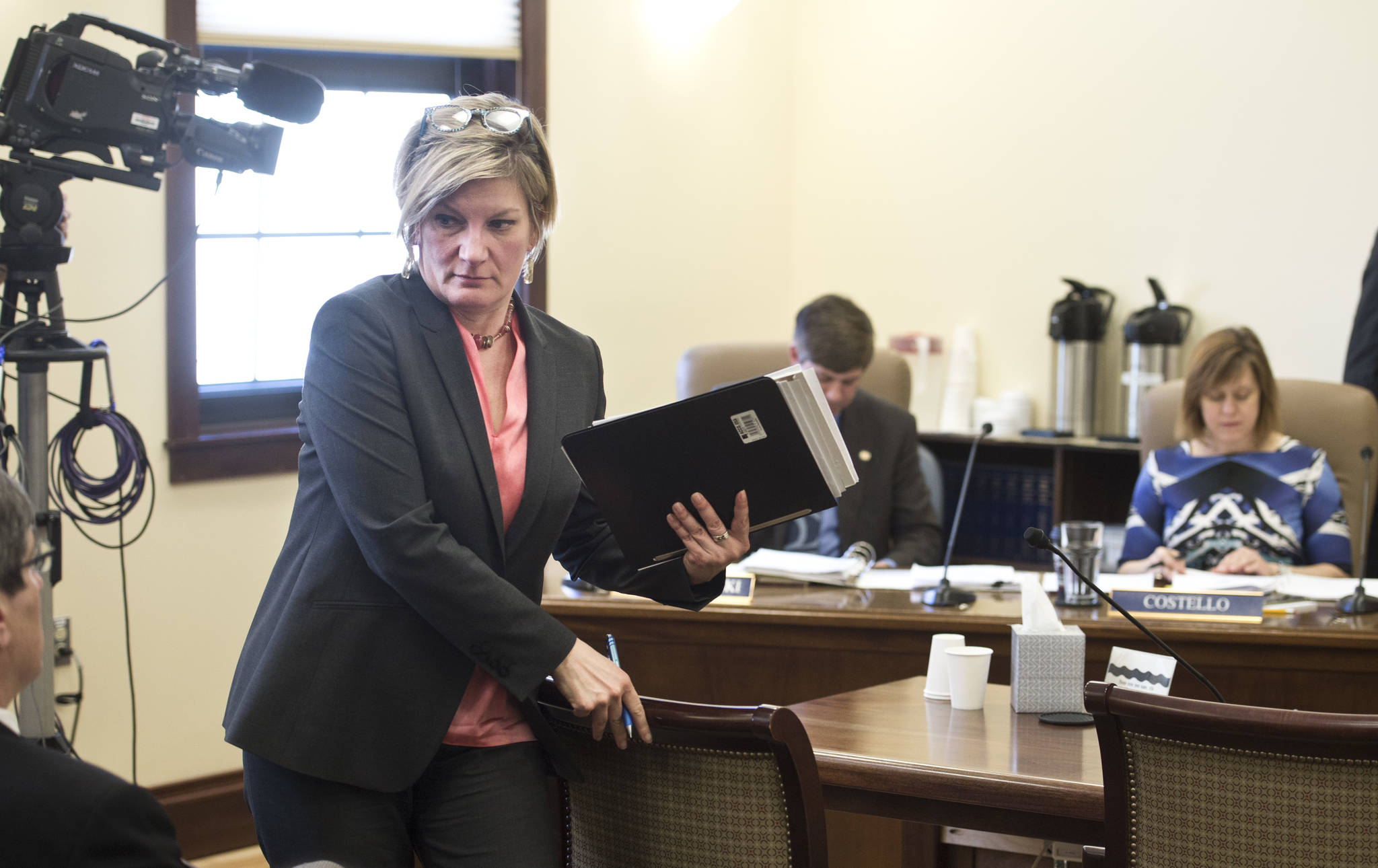Alaska’s attorney general and more than 100 other Alaskans waiting for legislative confirmation will have to wait for a few more weeks.
On Thursday morning, the Alaska Legislature voted 32-26 against considering the 103 people appointed to boards and commissions by Gov. Bill Walker. Under the Alaska Constitution, those appointees must be individually confirmed by the Legislature before the end of the regular session.
In a prepared statement, Walker called the Legislature’s action “disappointing.”
If the Legislature fails to confirm the appointees before the end of the Legislature’s Day 121, “the appointments will be considered to have been declined by the Legislature,” legislative attorney Doug Gardner wrote in 2015.
That scenario is unlikely, said Senate President Pete Kelly, R-Fairbanks.
“We tend to take the nominations up at the end of session anyway, which that’s probably what we’ll do. There’s nothing that I see that will take us off of that path,” he said.
He said the Senate wants to continue to focus on fixing the state deficit, particularly with Senate Bill 26, the measure that diverts some of the Permanent Fund earnings to cover state spending.
“The big thing is SB 26. I don’t think anybody disagrees with the fact that SB 26 is the high-value issue this year. It’s the fiscal plan. We have not gotten through with that yet, but we’re about to,” he said.
A SB 26 negotiating session between the House and Senate was canceled Thursday afternoon after Sen. Lyman Hoffman, D-Bethel and one of the Senate’s negotiators, had a family emergency.
Thursday morning’s events came after the House twice invited the Senate to a joint session for the purpose of considering the governor’s nominees.
The Senate twice refused that invitation. After the second refusal, Walker used his constitutional powers to force the two bodies into Thursday’s meeting.
That’s unusual, but not unheard of. In 2015, Walker did the same thing before allowing the Legislature to pick its own date for a vote. In 2002, Gov. Tony Knowles unsuccessfully attempted to force the Legislature to vote upon his picks for the boards of fish, game, education and the University of Alaska regents.
The most infamous case took place in June 1983 when Gov. Bill Sheffield called the House and Senate into joint session to consider his appointees. That session turned so acrimonious that the Alaska State Troopers had to be mustered by the Senate President.
Thursday’s vote was almost entirely along caucus lines. All of the Senate Majority’s Republican members voted to adjourn the joint session, as did Sen. Mike Dunleavy, R-Wasilla, who is in an independent caucus. Joining the Senate Majority was the 18-member Republican House Minority.
Voting against adjournment was the 22-member coalition House Majority and the five-member Democratic Senate Minority (Sen. Tom Begich, D-Anchorage was excused absent).
With the naysayers having only 27 of the 31 votes they needed to stay in joint session, the brief meeting adjourned.
Kelly specifically denied allegations that the Senate is specifically targeting any of the governor’s nominees. Earlier this week, Alaska Family Action issued a statement calling for the Legislature to oppose one of the governor’s nominees for the Human Rights Commission.
In addition, some senators have voiced concerns about attorney general nominee Jahna Lindemuth because of the state’s recent settlement of a land-access lawsuit.
“There’s nothing about this that has anything to do with a person. There’s no one that I know of with a target on their back. I think there’s some people who may have some difficulties — there’s no question about that — but there’s nothing here that has to do with any of the nominees,” Kelly said.
Speaker of the House Bryce Edgmon, D-Dillingham, said the House Majority is disappointed with Thursday’s decision as well.
“We wanted to get confirmations taken care of and sort of clear the deck to devote more time to the other, bigger issues that are out there, and there are plenty of them,” he said.
Even so, there’s still time to act, he added. Thursday’s vote doesn’t have any consequences, as long as the Legislature votes sometime in the next three weeks.
“If we go past the 120-day limit, then there will be consequences,” Edgmon said.
• Contact reporter James Brooks at james.k.brooks@juneauempire.com or call 419-7732.

